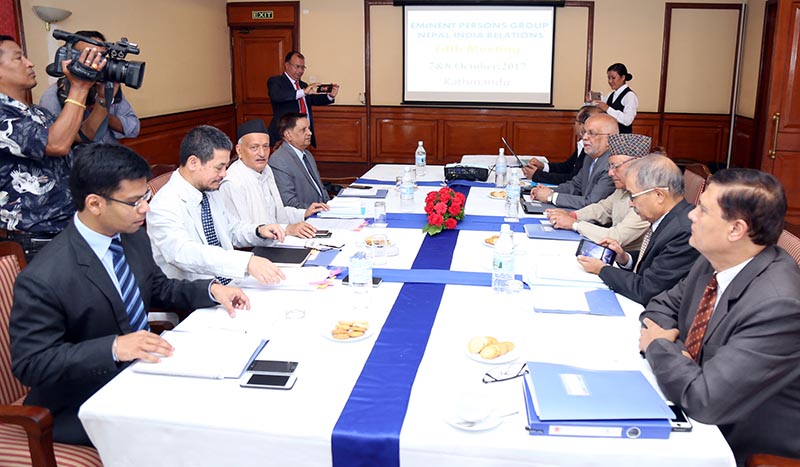‘1950 treaty will not remain the same’
Kathmandu, October 8
The fifth meeting of the Eminent Persons Group on Nepal-India relations concluded here today, with the Nepali side claiming ‘things would not be the same’ as far as the 1950 Nepal-India Treaty of Peace and Friendship was concerned.
Bhekh Bahadur Thapa, coordinator of the EPG from the Nepali side, said the group would re-study the developments so far and would come up with a recommendation to ‘either replace the treaty or to put in place something new’ in its final report.
“As we have said this treaty will not remain the same, it does not matter however you name it — amendment or replacement,” added Nilambar Acharya, another EPG member representing Nepal.
Thapa, however, made it clear that the treaty would not be abrogated. “The general understanding within the EPG is that instead of following a negative route, it will be better to work to improve the treaty,” he said.
According to the Nepali side, the meeting was held in a cordial and friendly environment where both the sides looked closely at all the issues related to the 1950 treaty, including Nepal’s grievances, disparities seen and opportunities it has thrown, bearing in mind their depth and gravity. “Talks were very positive even on some complex issues,” he said. “So there are clear and positive signs that things will not be the same.”
On border-related issues, the meeting discussed ways to curb anomalies prevalent along the border. With the Indian side adopting border regulation measures such as deploying security forces along the border and both the sides seeking identity proofs from air travellers, Thapa said the definition of ‘open border’ has already changed and the final EPG report would include measures to be adopted in future as far as border regulation is concerned.
Another EPG member Rajan Bhattarai added the EPG was not only discussing border regulation but overall border management, including issues related to lost border pillars, disputed land and encroachment of no-man’s land. “Talks were held on overall border management based on international norms by keeping in mind
that everyday lives of the people residing in border areas should not be affected,” he said.
As far as issues related to water resources were concerned, the EPG discussed the status of projects under different committees and what policy measures needed to be taken in the future. “Discussions are also being held on embankments built on the Indian side of the border causing inundation in Nepali territory,” said EPG member Surya Nath Upadhyay.
On trade and transit, talks are under way on the status of current provisions in place for Nepal’s trade with third countries via India, any problems, trade facilitation, port facilities, and security, among others, according to Bhattarai.
Detailed talks are also being held on other issues related to bilateral trade including problems at the border and lack of infrastructure such as quarantine and roads leading to a situation where execution at the ground level is different from bilateral agreements. “There are no major differences on trade and transit, and we are close to agreement,” he said.
The next EPG meeting will be held in New Delhi on November 11 and 12, where all these issues will be discussed again after necessary internal consultations by both sides.






